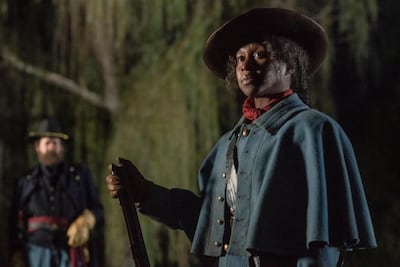Hollywood's awards season may not reflect it, but the world's most popular films are increasingly diverse, a new study has found.
According to research released yesterday by the University of Southern California's Annenberg Inclusion Initiative, more of 2019's top movies featured minority or female lead characters than ever recorded before.
Analysing the top 100 films at the North American box office for the year, USC researchers found that 31 movies had leads or co-leads from an underrepresented racial group, an increase of four films from 2018 and nearly triple the number of 10 years ago.
The data showed similar gains for female leads. Of the same films, 43 featured female leads or co-leads, an increase of four films from 2018 and more than double the number of female leads – 20 – in 2007.
Combined with studies released last month that showed a notable uptick in the numbers of female directors, the research paints a picture of an industry that, after years of lagging behind in representation in front of and behind the camera, is showing real signs of progress. While still falling short of an accurate reflection of the American population (51 per cent of which is female and about 40 per cent are people of colour), researchers called it “a banner year for inclusion".
“It is clear that Hollywood is taking steps to create more inclusive stories and that those films are connecting with audiences,” Stacy L Smith, founder of the Inclusion Initiative, said in statement.
But those gains haven't been reflected in Hollywood's awards season, which culminates on Sunday, February 9 with the Academy Awards. For the 87th time, no female filmmakers were nominated for Best Director. And while the much-nominated drama Parasite has made history as the first Korean film to be nominated for a best picture Oscar, only one person of colour – Cynthia Erivo for Harriet – was nominated in an acting category. At the British Academy of Film and Television Awards held on Sunday, only white actors were nominated.

“There is also a very obvious disconnect between what sells tickets and what garners awards points to a systemic bias at cultural institutions like the Baftas or the Academy Awards," Smith said. "After another year in which the major studios increased their output of films with female and underrepresented leads or co-leads, it is critical to recognise that talent is not limited by gender or race / ethnicity.”
The USC study also assessed the major distributors. Because box office is a key metric in their research, that doesn't include releases from streaming services including Netflix and Amazon, neither of which disclosed ticket sales for most of their 2019 releases.
Universal, the only studio helmed by a woman in Donna Langley, led all studios with nine films featuring a female lead and eight films featuring leads from an underrepresented ethnicity.

